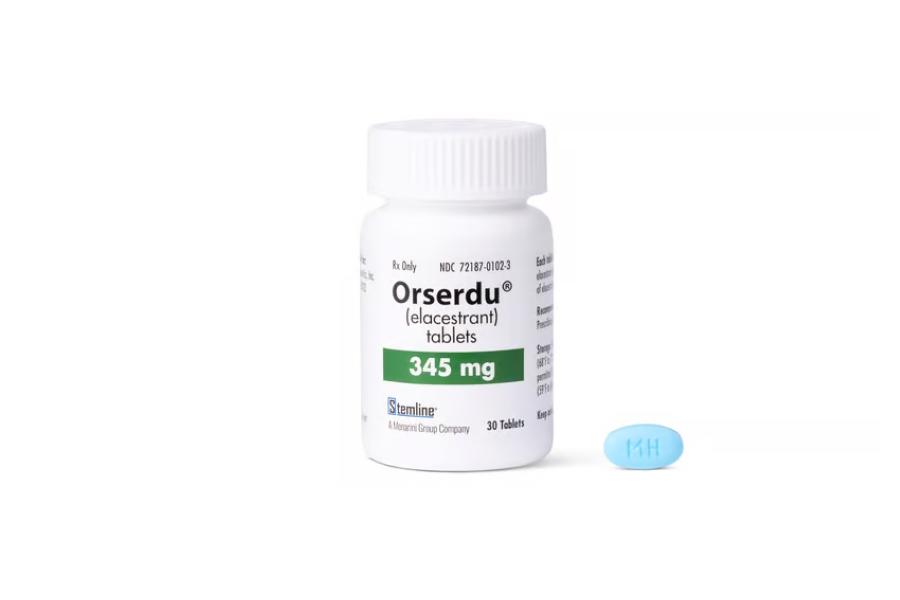Stemline first to market with oral SERD for breast cancer

Menarini subsidiary Stemline Therapeutics has won FDA approval for Orserdu, the first in a new class of oral selective oestrogen receptor degrader (SERD) drugs that provide a new form of hormonal therapy for breast cancer.
The US regulator has cleared Orserdu (elacestrant) for patients with advanced or metastatic hormone receptor-positive, HER2-negative breast cancer – after at least one prior line of hormonal therapy – who have a mutation called ESR1 in the oestrogen receptor.
The regulatory filing for the drug did not specify that use should be limited to the ESR1-positive population, so the FDA has approved a narrower label than originally sought when Stemline filed the drug last August.
New York-headquartered Stemline, which licensed global rights to elacestrant from Radius Health in July 2020, said the new drug is the first hormonal therapy with a novel mechanism of action in more than two decades.
The company plans to launch Orserdu onto the US market "soon", so is on track to beat some much larger pharma companies developing oral SERDS to market, including Roche with giredestrant and AstraZeneca with camizestrant.
Sanofi was arguably furthest ahead in developing the class with its amcenestrant candidate, but abandoned the programme last year after it failed a phase 3 study as a first-line therapy for HR+/HER2- advanced breast cancer, which took an 'all-comer' approach to recruitment and did not enrich the cohort for ESR1 mutations.
Around 70% of all metastatic breast cancer cases are HR+/HER2-, and according to Stemline, ESR1 mutations are found in up to 40% of these tumours, suggesting that there should be plenty of eligible – if it can encourage use of ESR1 testing.
In tandem with the new drug's approval the FDA also cleared an ESR1 companion diagnostic developed by Guardant Health.
Orserdu's approval is based on the results of the EMERALD trial, which demonstrated a statistically significant 45% improvement in progression-free survival (PFS) in ESR1-positive patients compared to a control group treated with standard second-line endocrine monotherapies, such as injectable fulvestrant – sold by AZ as Faslodex and the only SERD approved for breast cancer – or aromatase inhibitors like letrozole, anastrozole, or exemestane.
For the overall group, there was a 30% improvement in PFS, at 22% at 12 months for Orserdu versus 9% for the control therapies, and almost 27% and 8%, respectively, for the ESR1 subgroup.
The FDA approved Orserdu under its fast track and priority designations, ahead of a planned decision deadline in the middle of February. Meanwhile, a marketing application is also under review by the European Medicines Agency.











